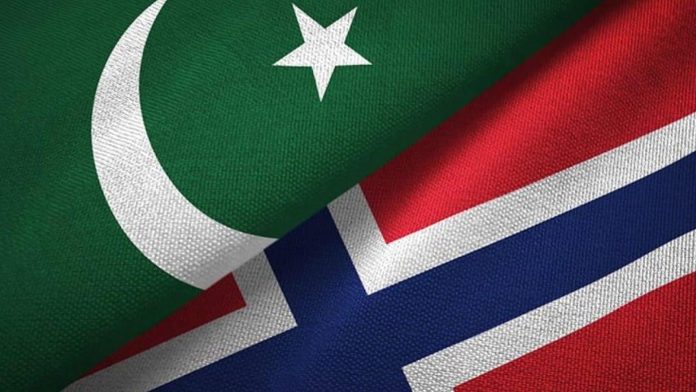DNA
ISLAMABAD: ‘Norway is providing an additional NOK 55 million to alleviate humanitarian needs in the wake of the catastrophic flooding in Pakistan,’ said Minister of Foreign Affairs Anniken Huitfeldt.
This brings Norway’s humanitarian support in response to the recent floods to NOK 80 million.
‘The situation is desperate for many millions of people, and our partners are working tirelessly to reach those who have been hardest hit,’ said Ms Huitfeldt.
Pakistan has been hit by the most devastating flooding it has experienced for many years, and vast areas of the country are under water. According to the UN, more than 33 million people are affected and over 1300 may have died. The flood has caused widespread damage to civilian infrastructure such as schools, health clinics and water and sanitation systems. Many roads and bridges have also been destroyed, making humanitarian relief efforts more difficult.
‘The flooding highlights the urgent need to adapt to climate change and safeguard food security, particularly in the countries most vulnerable to climate change and natural disasters,’ said Minister of International Development Anne Beathe Tvinnereim.
Some NOK 13.5 million of Norway’s support for the flood victims will be channelled through the World Food Programme (WFP) to be used for food security measures, including cash transfers.
‘This funding will help to alleviate the immediate food needs of the most vulnerable people, and support efforts to establish more climate-resilient food production,’ said Ms Tvinnereim.
The disaster has had a major impact on health needs, and has for example increased the risk of waterborne diseases such as cholera and diarrhoea. Already vulnerable groups are now facing even greater health risks, and the support Norway is providing will therefore be targeted towards protecting those most in need.
Norway’s support will be channelled through Norwegian Church Aid, Norcap, the World Health Organization (WHO), the United Nations Population Fund (UNFPA), and the International Red Cross and Red Crescent Movement, including the Norwegian Red Cross, in addition to funding provided through the UN Central Emergency Response Fund (CERF). Norway is one of the largest donors of core support to UN organisations working to provide assistance to flood victims in Pakistan. Core support enables these organisations to prepare for emergencies and to respond as soon as a disaster strikes. In addition, Norway is providing support for education efforts via the UN Children’s Fund (Unicef) and the World Food Programme to ensure that children affected by the flooding can continue to attend school.
The impacts of the flooding have been most severe in the southern and western provinces of Sindh, Khyber Pakhtunkhwa and Balochistan. According to UN reports, over a million homes and 18.000 schools have been completely or partially destroyed. The flooding has caused widespread damage to agricultural land and infrastructure in the affected areas.
‘Both the immediate and the longer-term needs are enormous. Effective follow-up by the Pakistani authorities will be crucial to build more resilient livelihoods for the people in these areas,’ said Ms Huitfeldt.
The UN estimates that over 16 million children are affected by the flooding. The long-term psychosocial impact of the flood disaster in Pakistan is cause for great concern.
‘I am particularly worried about the children who do not have access to schooling during the crisis. We must provide support to protect these children and enable them to return to school as soon as possible,’ said Ms Tvinnereim.
The UN is already working with the Pakistani authorities and international organisations to ensure a coordinated response and provide humanitarian aid to flood victims. The International Red Cross and Red Crescent Movement is working closely with the Pakistan Red Crescent Society to respond to the rapidly expanding needs, particularly for health care, in the affected provinces. Norway considers it important to channel funding through international humanitarian organisations that have relevant insight and experience and a local presence on the ground.

















